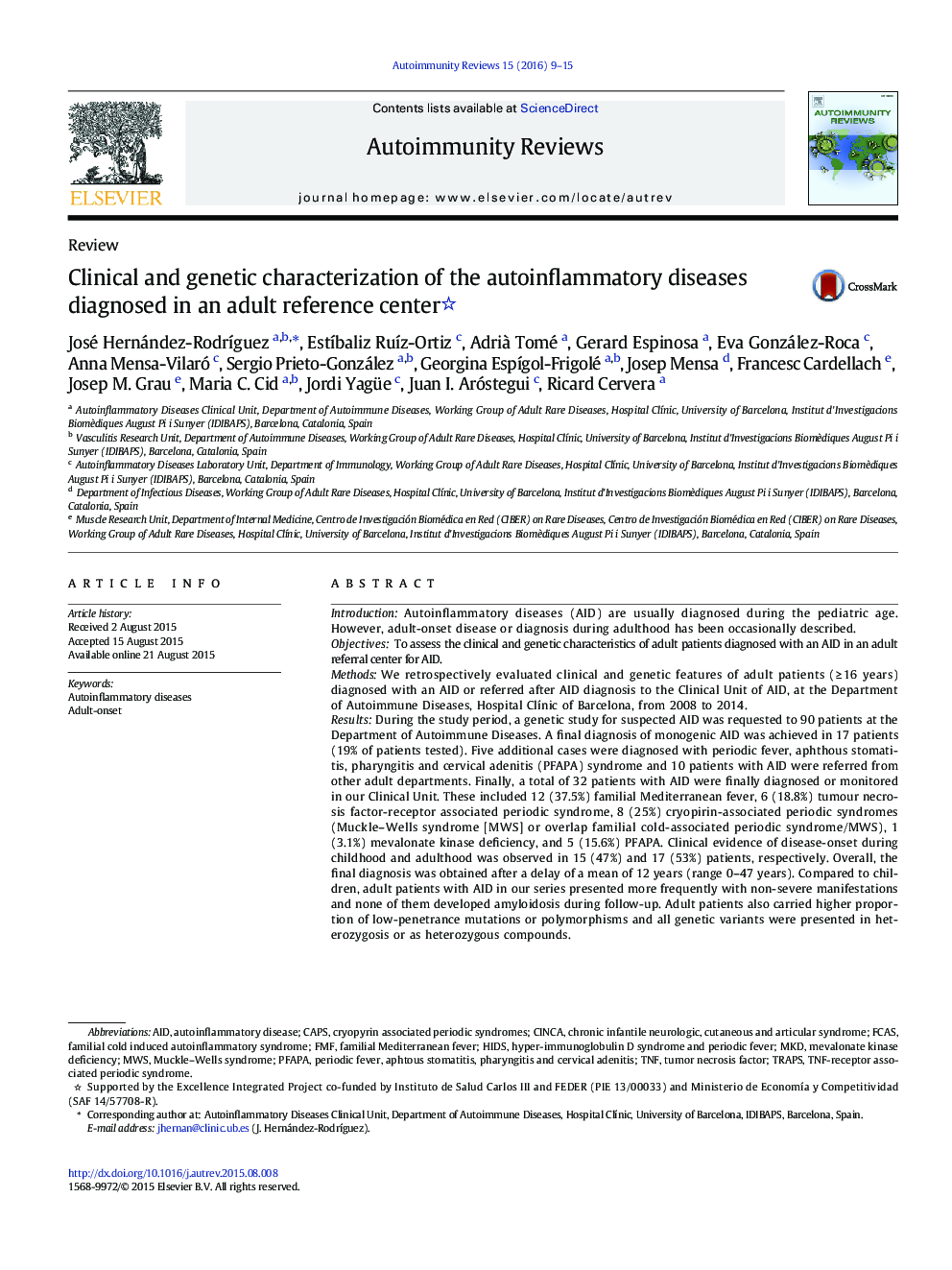| کد مقاله | کد نشریه | سال انتشار | مقاله انگلیسی | نسخه تمام متن |
|---|---|---|---|---|
| 3341493 | 1214216 | 2016 | 7 صفحه PDF | دانلود رایگان |

IntroductionAutoinflammatory diseases (AID) are usually diagnosed during the pediatric age. However, adult-onset disease or diagnosis during adulthood has been occasionally described.ObjectivesTo assess the clinical and genetic characteristics of adult patients diagnosed with an AID in an adult referral center for AID.MethodsWe retrospectively evaluated clinical and genetic features of adult patients (≥ 16 years) diagnosed with an AID or referred after AID diagnosis to the Clinical Unit of AID, at the Department of Autoimmune Diseases, Hospital Clínic of Barcelona, from 2008 to 2014.ResultsDuring the study period, a genetic study for suspected AID was requested to 90 patients at the Department of Autoimmune Diseases. A final diagnosis of monogenic AID was achieved in 17 patients (19% of patients tested). Five additional cases were diagnosed with periodic fever, aphthous stomatitis, pharyngitis and cervical adenitis (PFAPA) syndrome and 10 patients with AID were referred from other adult departments. Finally, a total of 32 patients with AID were finally diagnosed or monitored in our Clinical Unit. These included 12 (37.5%) familial Mediterranean fever, 6 (18.8%) tumour necrosis factor-receptor associated periodic syndrome, 8 (25%) cryopirin-associated periodic syndromes (Muckle–Wells syndrome [MWS] or overlap familial cold-associated periodic syndrome/MWS), 1 (3.1%) mevalonate kinase deficiency, and 5 (15.6%) PFAPA. Clinical evidence of disease-onset during childhood and adulthood was observed in 15 (47%) and 17 (53%) patients, respectively. Overall, the final diagnosis was obtained after a delay of a mean of 12 years (range 0–47 years). Compared to children, adult patients with AID in our series presented more frequently with non-severe manifestations and none of them developed amyloidosis during follow-up. Adult patients also carried higher proportion of low-penetrance mutations or polymorphisms and all genetic variants were presented in heterozygosis or as heterozygous compounds.ConclusionsAdult disease-onset or delayed diagnosis of AID during adulthood is associated with milder disease phenotypes, and seem to be driven by mild genotypes, with predominant presence of low-penetrance mutations or polymorphisms.
Journal: Autoimmunity Reviews - Volume 15, Issue 1, January 2016, Pages 9–15